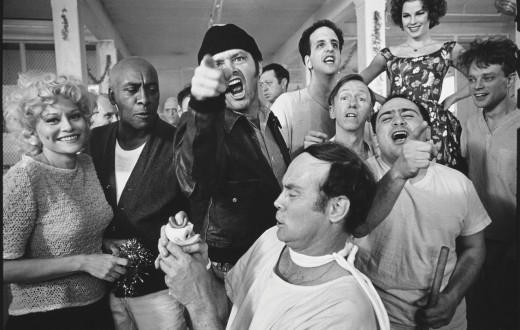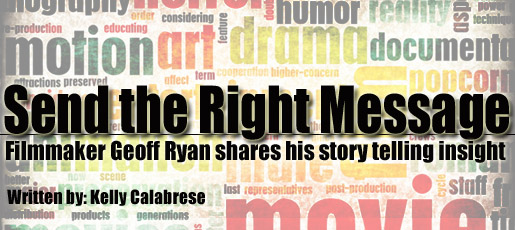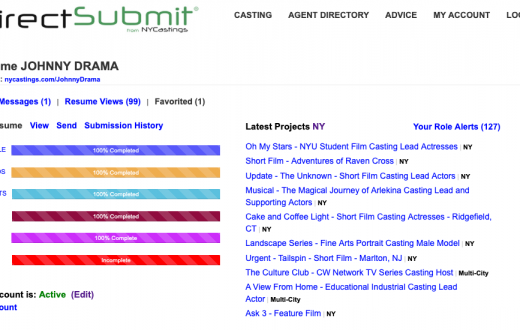“I remember that Jack Lemmon, who is one of my favorite actors of all time, says that the day he stops being nervous is the day he should leave the business.”
–Kim Basinger
Let’s be honest: acting is a very unnatural thing. Whereas most people tend to keep their raw emotions under wraps, or at least not on display for the general public, as an actor you are tasked with doing the exact opposite: accessing and sharing the most intimate parts of your deepest self with strangers.
So it’s no wonder that acting is a bit nerve-wracking–in fact it would be a little disturbing if it weren’t.
And of course the audition is the most vulnerable, raw, and exposed moment the actor likely experiences; after all you are literally putting yourself on display for strangers to judge your worth. How could you NOT get a bit nervy in such a situation? Here are a few ideas for helping you to deal with the nerves that come with auditioning, and put on your best performance every time!
1. Breathe In The Air
The human animal is an amazing thing. We can take a thought, like worrying about forgetting our lines, and this little bit of nothing, this tiny electro-chemical zap between neurons deep in our brains will manifest itself in sweaty palms, increased heart rate, shallow breathing–you know the drill. So, while we can’t really prevent those little neurons from firing, what we can do is face the issue from the outside-in, by dealing with nerves and nervousness by addressing those physical cues first. It may sound trite and old hat, but deep breathing is an incredibly calming act. The Latin root of the word “respire,” or “to breathe” is also the root of the word “aspire,” and both of these refer to “the breath of life.” Visualize that as you take a moment to do some deep breathing exercises. Another useful tool for using breath to help you overcome nerves is to force your lungs to work a little harder. Do a few push-ups or jump around a bit if you can find some space to do so. Shake out your limbs and run in place for a moment. The shallowness of breath and tight-chested sensation of being nervous can’t coexist with labored breathing from exertion. Neil Young swears by doing 25 push-ups right before he takes the stage to get rid of that tightness in the chest; we could do worse than to emulate him.
2. Denial Ain’t Just a River in Egypt
So that’s the physical side of it, now for the mental aspects of nervousness. The first step toward overcoming any problem is acknowledging it. One huge mistake we make as actors is denying the plain and apparent fact that we all get nervous from time to time. To claim otherwise is sometimes considered a sort of badge of honor, almost weirdly machismo, or a perceived token of professionalism for some actors to claim they simply don’t get nervous. This, to put it in completely modern and cool terms all the kids will understand, is utter horse hockey. Oscar-winning actor Henry Fonda was famously known for throwing up in the wings a few minutes prior to virtually every stage performance he was ever in throughout his long and illustrious career. If your college roommate Tyler smugly tries to claim he’s less nervous as an actor than Henry Fonda, sorry, not buying it. The thing about denying pre-audition nerves or anything else is that trying to ignore it feeds the monster and allows it to grow even larger and more powerful. Nerves are a good thing. Read the quote at the top of this piece again: Jack Lemmon said that if he ever WASN’T nervous, he should quit acting. It’s nerves and adrenaline that spark the best performances. So if you’re feeling nervous in the waiting room, sit with that for a moment. Allow yourself to feel that. It’s okay. And again it’s perfectly natural. But as you meditate on the feeling, ask yourself where it’s coming from: are you excited about possibly getting cast? Fearful you won’t be? Worried about being a little under-prepared and possibly making a mistake? While these are all perfectly normal thoughts, they are encumbrances in the audition room. They are roadblocks to allowing your best work to come out. These kinds of thoughts are like annoying little mental mosquitoes buzzing around your ears: they are tiny, infinitesimal really, but they can have real-world consequences. Maybe you can’t change your feelings, but you can change your thoughts, the ones that lead to those feelings. So while you can acknowledge these distracting thoughts, you also have to put them aside. So…
3. Focus, Grasshopper
The thing about being nervous is it is an inherently self-absorbed and selfish thought process: what will they think of me? What if I make a mistake? What if I don’t get cast? Notice all the first-person references in there. These thoughts are going to cross all of our minds from time to time, no doubt. But you have some control over them by simply switching your focus to what you’re really here for, which are things outside of yourself: what are your objectives as the character? What do you want to try to get the other characters in the scene to do? How are you going to get them to do what you want? Notice the outward focus of these thoughts–that’s where your head should be as you get ready to audition. If it is, you will definitely notice the nervousness slipping away as you instead focus on the work you must do.
4. People Are People
Finally, remember that the people you are auditioning for are, well, people. They have lives and worries and friends and pets and hobbies, just like you do. Too many actors walk into auditions treating casting directors as if they were just down from Mount Olympus for the day to pass judgment on us lowly humans. No. Wrong. Talk to them as if they were people–because they are–and you’ll find yourself a lot less nervous about performing for them–which is after all what you love to do!
The main thing to remember about audition nerves is that you are not alone. Everyone, but everyone experiences some level of nervousness when they audition. Just accept that it’s part of the gig and use that energy to inform and color your performance while focusing on your intent and objectives and you’ll find that they can actually help rather than hinder you!







